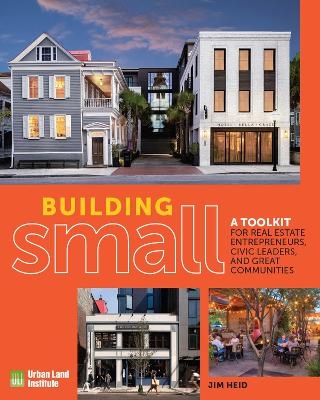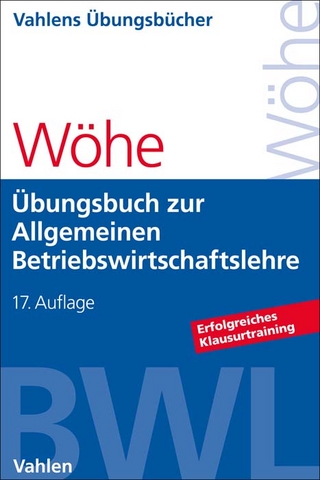
Building Small
A Toolkit for Real Estate Entrepreneurs, Civic Leaders, and Great Communities
Seiten
2021
Urban Land Institute,U.S. (Verlag)
978-0-87420-468-1 (ISBN)
Urban Land Institute,U.S. (Verlag)
978-0-87420-468-1 (ISBN)
Drawing on research and using case studies, interviews with over 100 developers, and first-hand knowledge, Jim Heid articulates what small-scale development means, why it is essential to communities, and how entrepreneurial developers and community leaders can help remove obstacles to small-delivering successful projects.
Small-scale, incremental real estate development is gaining momentum as an alternative to more conventional approaches. Small-scale development helps create authentic places, acts as a magnet for new investment, and helps attract talent-based employment, all while fostering a more resilient local economy. This, in turn, helps communities better differentiate themselves when seeking new investment in an increasingly competitive landscape. Despite those virtues, entrepreneurial developers working to 'build small' face jurisdictional and capital barriers that impede bringing this approach to scale. Drawing on extensive research and using case studies, interviews with over 100 developers, and first-hand knowledge gained from tours of several U.S. cities, author Jim Heid articulates what small-scale development means, why it is essential to communities of every size and in every location, and how entrepreneurial developers and community leaders can help remove obstacles to small-delivering successful projects and resulting in a better approach to building community.
Small-scale, incremental real estate development is gaining momentum as an alternative to more conventional approaches. Small-scale development helps create authentic places, acts as a magnet for new investment, and helps attract talent-based employment, all while fostering a more resilient local economy. This, in turn, helps communities better differentiate themselves when seeking new investment in an increasingly competitive landscape. Despite those virtues, entrepreneurial developers working to 'build small' face jurisdictional and capital barriers that impede bringing this approach to scale. Drawing on extensive research and using case studies, interviews with over 100 developers, and first-hand knowledge gained from tours of several U.S. cities, author Jim Heid articulates what small-scale development means, why it is essential to communities of every size and in every location, and how entrepreneurial developers and community leaders can help remove obstacles to small-delivering successful projects and resulting in a better approach to building community.
Jim Heid, FASLA, is a real estate developer and strategic real estate adviser focused on the tools and techniques that lead to a more sustainable built environment. For more than 30 years he has advised cities, NGOs, legacy landowners, and private developers on more positive ways to build community. In 2017, he founded CRAFT, a real estate company focused on incremental development and intentional place building.
| Erscheinungsdatum | 26.03.2021 |
|---|---|
| Verlagsort | Washington DC |
| Sprache | englisch |
| Maße | 203 x 254 mm |
| Gewicht | 855 g |
| Themenwelt | Technik ► Architektur |
| Wirtschaft ► Betriebswirtschaft / Management ► Allgemeines / Lexika | |
| ISBN-10 | 0-87420-468-2 / 0874204682 |
| ISBN-13 | 978-0-87420-468-1 / 9780874204681 |
| Zustand | Neuware |
| Haben Sie eine Frage zum Produkt? |
Mehr entdecken
aus dem Bereich
aus dem Bereich
Buch | Hardcover (2023)
Vahlen (Verlag)
34,90 €
umfassende Einführung aus managementorientierter Sicht
Buch | Hardcover (2023)
Springer Gabler (Verlag)
59,99 €


